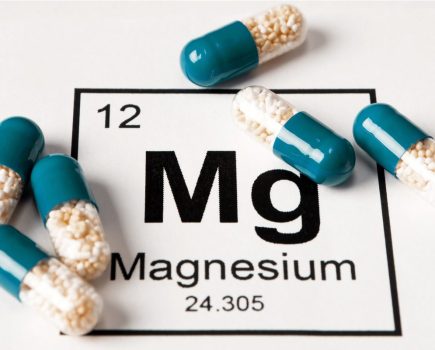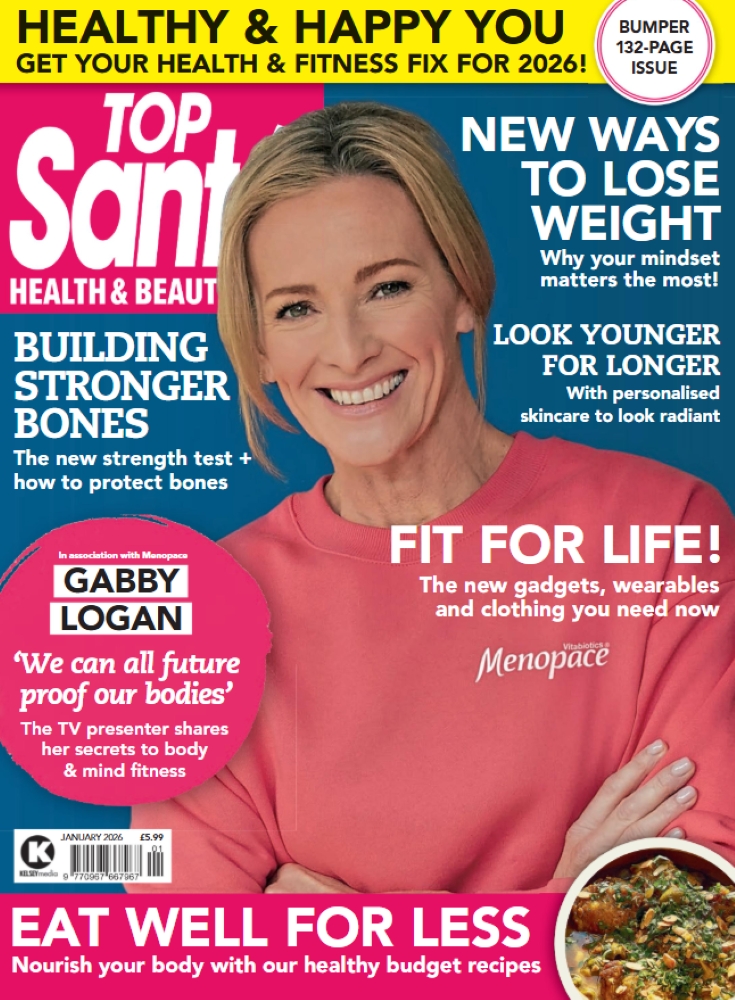Biohacking pioneer Davinia Taylor talks to Jo Ebsworth about lowering her biological age with healthy hacks, ignoring the haters, and continuing her mission to transform women’s healthcare.
Words: Jo Ebsworth. Images: Catherine Harbour.
At the age of 35, I felt like I was 95 years old. As soon as I woke up, everything felt like hard work and I’d want another hour’s sleep, but you can’t do that when you’ve got to get the kids to nursery.
I’d go downstairs and huff and puff while having wholegrain cereal with skimmed milk and orange juice for breakfast. And think that was fine because I was following the advice from our governing bodies – you know, eat little and often, eat wholegrains, don’t eat meat or saturated fat, and watch your sugar intake with aspartame or sucralose. But it wasn’t good enough, and I’d always be thinking about the next meal or snack.
At this point, I’d been sober from alcohol for five years but I felt hungover. I’d replaced alcohol with sugar and carbohydrate addictions; therefore, I felt fatigued, sluggish, bloated, overweight and I struggled to walk because my knees were so achy and swollen. I’d drive to the shops, and if there wasn’t a mother and baby space available, I’d drive home and do the shopping online!
Obviously, I went to the doctor. They said: ’You’re depressed, you’ve had too many kids, and you need more antidepressants.‘ But I’d had four kids, not 18! Now I know that my brain was on “save energy mode” because it had been affected by insulin resistance. I was overfed but undernourished and chronically inflamed, and that made me feel old before my time.
I’ve completely changed my approach to health since then. My chronological age is 47 but my biological age is 20, and I feel better now than I ever did in my teens, 20s or 30s. That said, I’m coming to an age where my mum got really ill, and you just say, ’Wow!‘
My great-grandmother died in her 80s, my grandmother in her 70s, and my mother died from cancer when she turned 60. So, whatever my lineage is doing, it’s not working out for us very well, is it? I’m like, ‘It’s coming for me’.
But I’ve got four boys, so if you think I’m going to take the health advice my mum did by eating a low-saturated fat diet, and having loads of carbs all the time, and taking so many antidepressants and painkillers – absolutely everything was thrown at her, a literal pharmaceutical cascade – instead of doing what my great-grandmother did, you’re wrong. I just can’t take that risk.
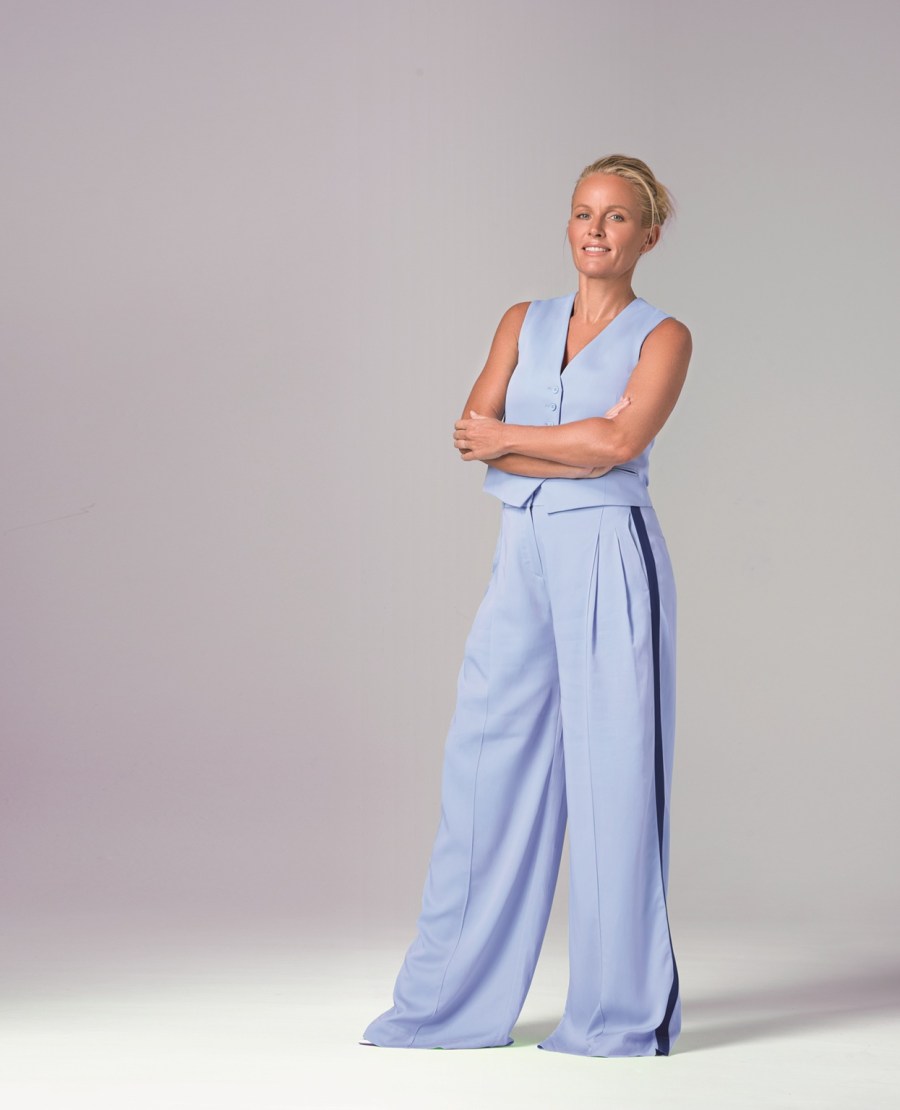
People will call me shrill and a grifter, but that’s my story. And that’s why my new book, Futureproof: Build Resilience, Feel Younger, Live Longer is all about ageing well, so we can all live longer, healthier, more vibrant lives. Because there are more adults dropping dead on the spot and more kids getting cancer and diabetes, yet no one talks about it because we’re meant to be all, ’God bless the NHS‘.
Doctors will say we’ve got more people living into their 80s now – which, by the way, we always have done – but that includes people in care homes who are incontinent, nonverbal, bedbound… and that’s considered longevity?! It’s not good enough for me, and I don’t think it’s good enough for other women either, including all the mums I see looking frazzled at the school gate.
Studies show there is, on average, a 17-year time lag in “translational research”. And this is exactly why I have arguments with doctors online, because all the innovative and interesting medical research that’s happening right now – and that I’m talking about – won’t trickle down to your GP for another 17 years.
Don’t get me wrong, you’ve got to have sympathy with the system because doctors pay a fortune to go to university for seven years, if not longer, but it’s a known fact that 50 per cent of whatever doctors learn in medical school is either wrong or irrelevant within five years. Plus, they’ve got so much admin to do – as if they’ve got the time to do what I do and go to all these conferences or interview PhDs who are working on the latest data that is pivotal to how we approach health.
I’m like, ’You’re looking at old data sets that are irrelevant to me. I have nothing in common with some 25-year-old male student in Utah who’s being tested for obesity‘. It’s just so out of date by then.
We’re at a crossroads, and I’m at the front and centre of it. All our data sets need revising because they’re dated and based on 1970’s science collaborations with big food and big pharma, so the conflict of interest is massive.
Fat has been demonised since the 70s when the food pyramid came in, and now everyone’s got obesity and hormone issues, and they’re depressed and anxious, and they can’t run, and they’re suffering from insomnia and chronic fatigue at the same time. It’s like the Eatwell Plate that was bought and paid for by the agriculture industry, hence why it says you should have six portions of grains a day, obviously.
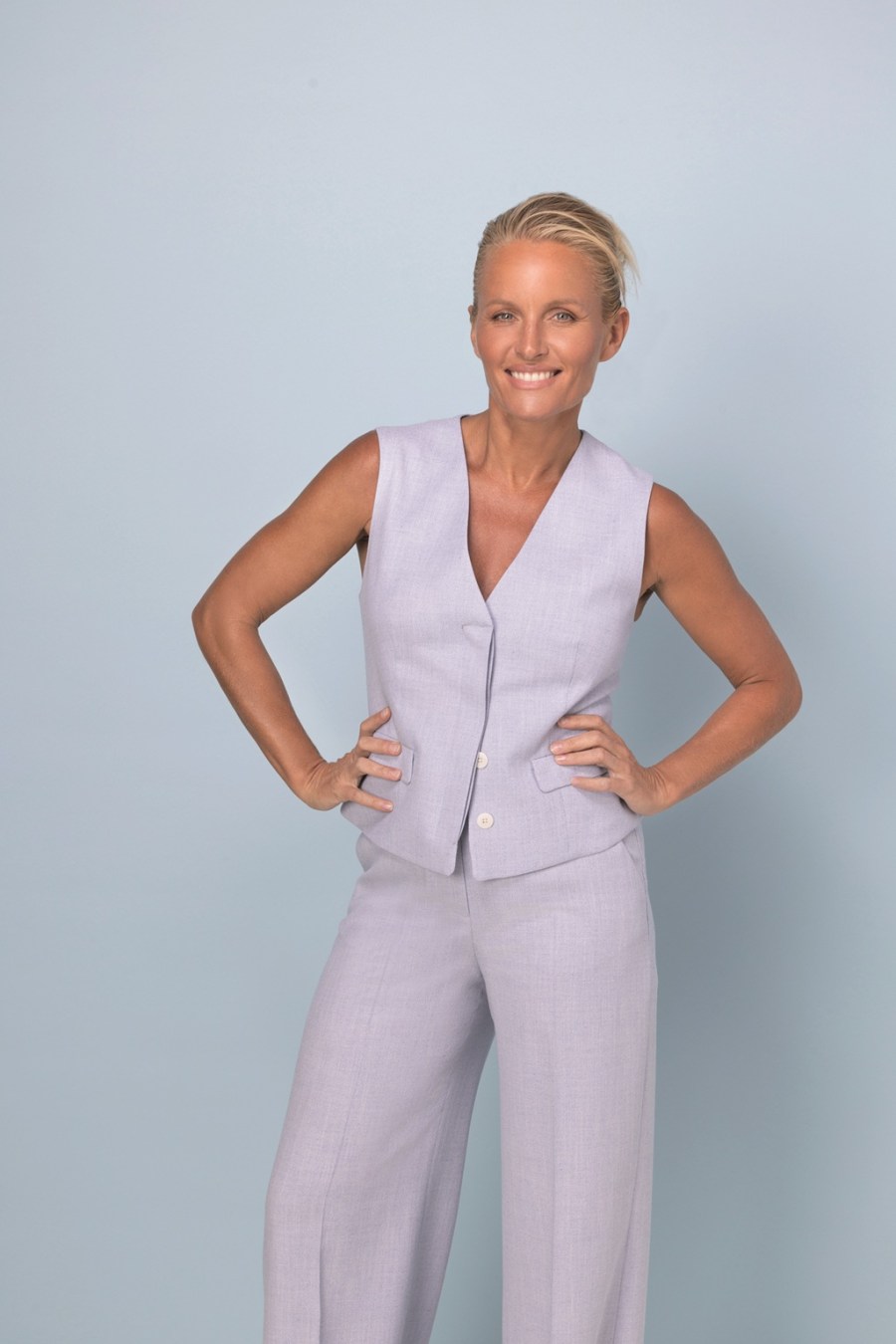
Something is wrong, but people are stuck listening to old scientific data like it’s a religion. That’s when I say, ’You do you and I’ll do me’. I’m not waiting 17 years for them to do a U-turn like they did with cigarettes.
I have been demonised for saying I eat five eggs a day. People have said I’m trying to give them a heart attack, but now eggs are suddenly a superfood.
It’s crackers! Not so long ago, it was all about total cholesterol, and people still said, ’Oh, my total cholesterol is really high‘. But now, doctors are saying, ’Oh no, you’ve got good and bad cholesterol, and now it’s not actually bad cholesterol we’ve got to look at, it’s just oxidised LDL‘. I’m like, ’Come on! When are we going to give this cholesterol thing a rework?‘.
Because it’s still on the increase, and GPs are still prescribing statins, even though you’ve got experts like [British cardiologist] Dr Aseem Malhotra waging a war on them.
The big focus now in innovative medicine is about increasing healthspan rather than just our lifespan. It’s about the number of years we live in good health free from chronic disease and pain, and that’s what true longevity means to me.
I want to be full of energy right up to the end so I can see my great-grandchildren play football on a Saturday and get excited about horticulture wandering around B&Q. I don’t want to be another number on a pharmaceutical cocktail that is causing knock-on effects. As a generation, we somehow feel mugged off if we get a doctor’s appointment and don’t come away with a prescription. But that’s because we’ve been taught that taking a pill will fix you when, ultimately, it’s disempowering.
I get trolled a lot online but I have to pick and choose my battles. However, I will keep trying to make a change because the system is broken. The NHS is broken, and women are broken as a result. The number of women who are gaslit and told, ’Shut up. You’re fine‘, is crazy. We’ve got twice the pain receptors as men and yet we still get brushed aside and told to have a paracetamol if we’re in agony, or we’re put on the contraceptive pill at 15 years old for acne and endometriosis like it’s our norm.
Are we not going to fix the acne and endometriosis by looking after young girls’ gut health? It’s the same with HRT. Just, ’There you go, lady. Have your HRT, get on with your day and stop moaning‘. Which is how I feel it’s gone. But I’ve got breast cancer in my family. So, what are the risks? Where are the numbers? I want to know more.
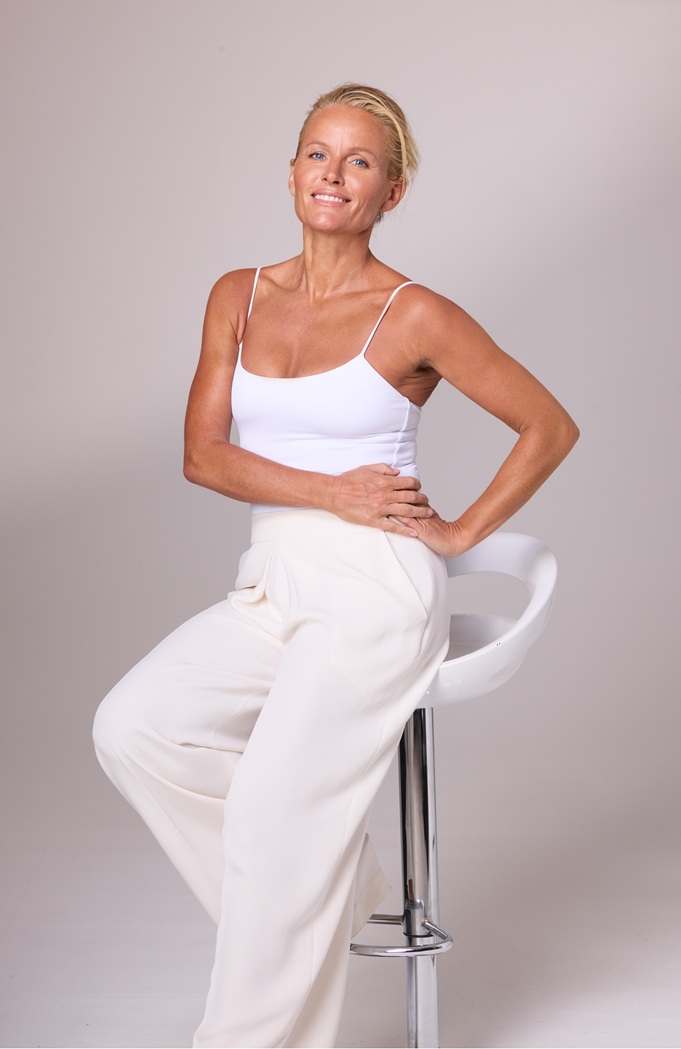
Now, women are turning to Mounjaro and Ozempic to battle their weight when I did it with ancient food. For me, history and ancestry don’t lie, and as soon as we go back onto a human-being diet with less processed food, we do better. Cooked meat is the most unprocessed food you can have apart from raw veg because there’s only one process there.
So why are we demonising it? Organ meats like beef liver are so nutrient-dense, but they’re demonised, as is the skin on chicken, even though it contains glycine, which heals the gut, calms the nervous system and reduces histamine. And yet we’re being told not to eat it?
Personally, I think if food existed in our great-grandmother’s heritage, I’ll eat it. Do I want margarine? No, I’ll stick with butter. Do I want processed white bread? No, I’ll have sourdough that takes longer to prepare and ferment, so it’s less inflammatory.
Inflammation really is public enemy number one when it comes to ageing us. As I say in my new book, you’ve got good inflammation, like when you cut your finger or sprain your ankle and it goes red and swells up. But, in the 21st century, you’ve also got bad inflammation from constant little shocks like emails, lack of sleep, blue light at the wrong time of the day, the food we eat and the news we consume, and it’s constantly spiking our cortisol levels and a fight or flight modality, which is causing systemic chronic inflammation.
And when your body’s fighting off an immediate threat, it’s not doing all the things it should be, like digesting and detoxing. Often, the way people reduce stress is to grab carbohydrates that lower cortisol, so they’re biohacking, but in a negative way. I eat carbs for dinner because they reduce stress and make you feel sleepy and cosy, but I don’t eat them for breakfast. Why the heck would I want to be digesting overnight oats and oat milk before I’m dropping the kids off at school and going for a run?
While I think AI is really scary, I do believe it will benefit women’s health. As a cohort, we’ve never really been studied before due to our individuality; we’re too complicated, with hormones that fluctuate on a minute-by-minute basis, never mind month-on-month or year-on-year!
But I think there will be an absolute joining of forces between AI, the harvesting of data, and the personalisation of healthcare when it’s combined with self-monitoring, such as DNA testing, sleep tracking, and blood-sugar monitoring, as well as how you feel intuitively.
In the next five years, I’m hoping we’ll be able to breeze through menopause and be able to monitor ourselves as an N-of-1 [a single randomised control trial], rather than this one-size-fits-all approach based on a meta-analysis, which doctors are lumbered with, so we can put a diagnosis at our fingertips. Because you know if you feel off. And no document can tell you otherwise.
Futureproof: Build Resilience, Feel Younger, Live Longer by Davinia Taylor (£16.99, Orion Publishing), is out now.
Follow Davinia on Instagram at @DaviniaTaylor




